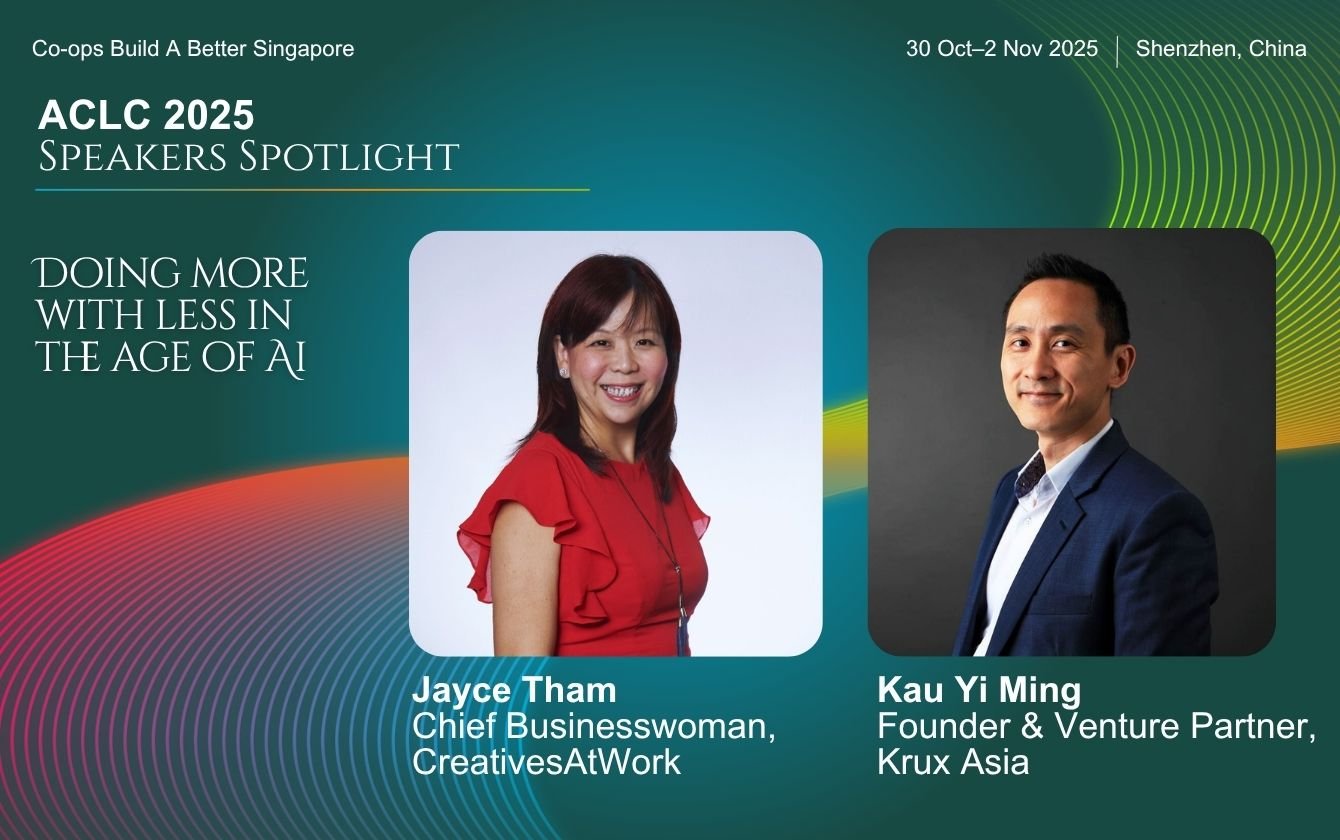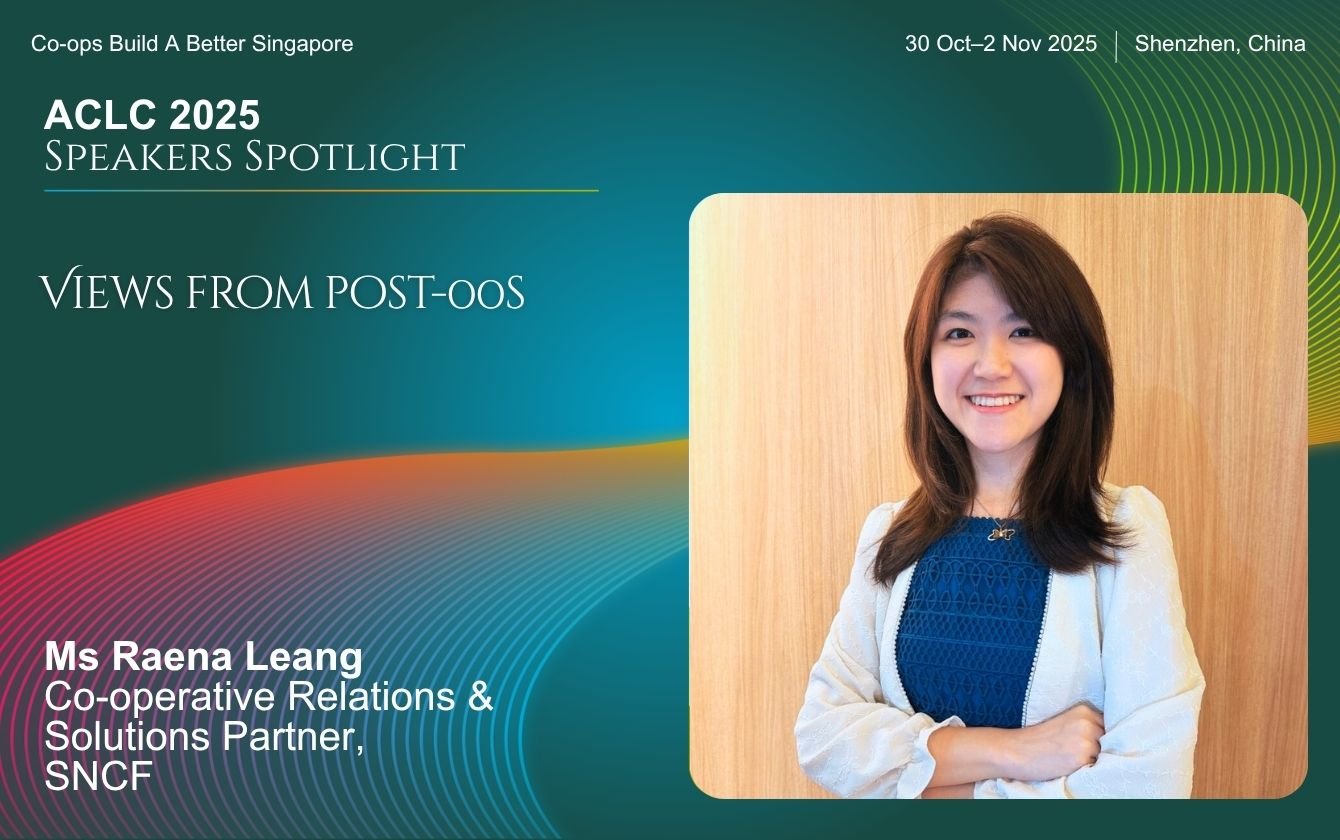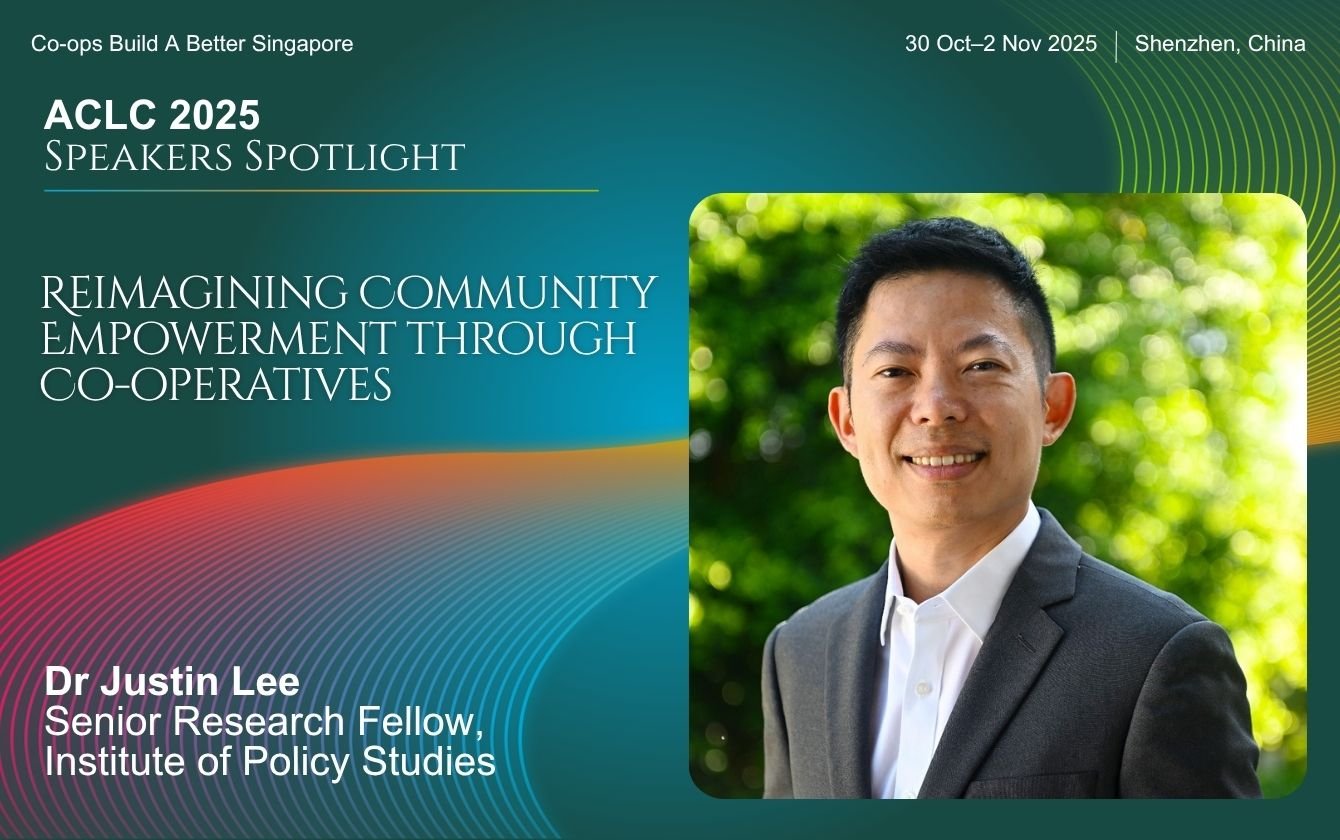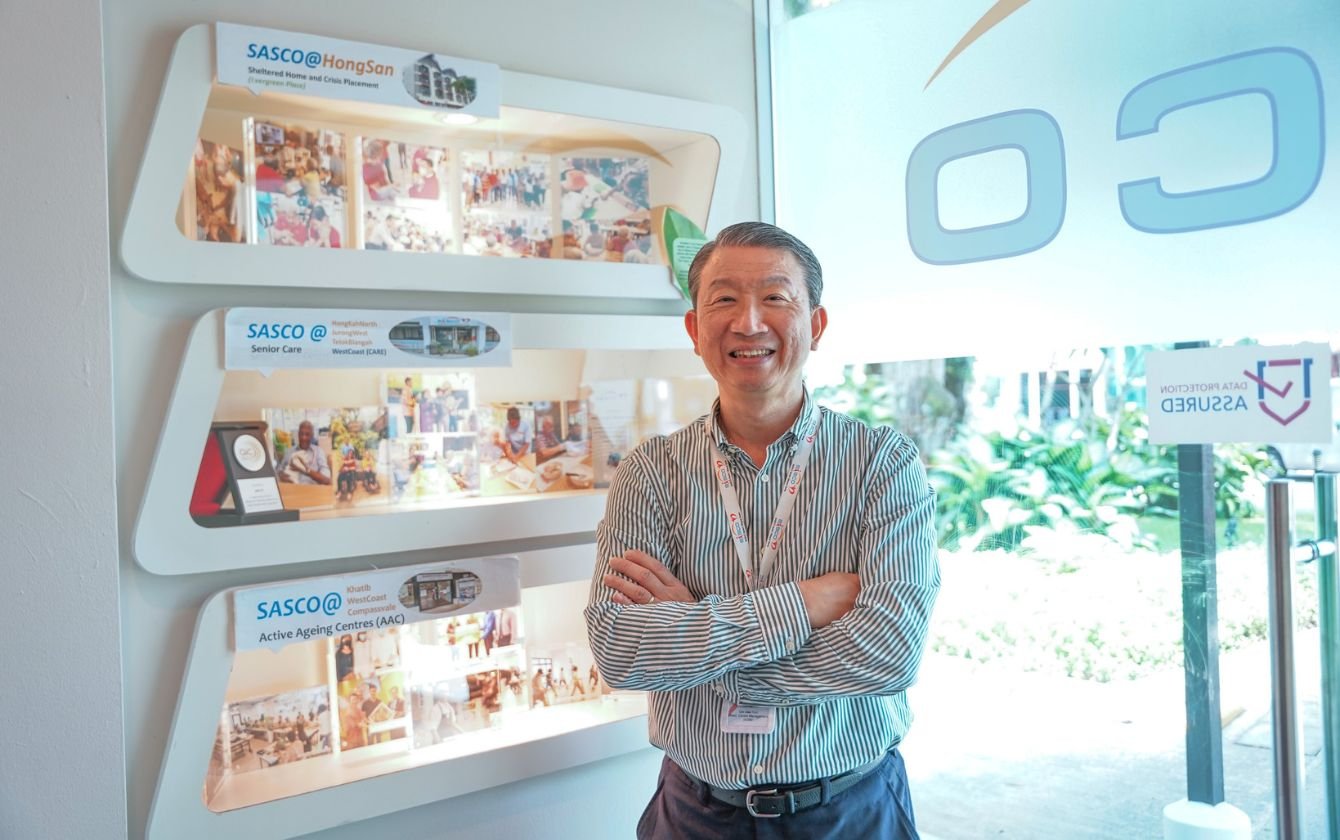

September 2025 Issue: Co-operator Newsletter Quarterly September 2025
ACLC 2025 Speakers Spotlight: Ms Jayce Tham and Mr Kau Yi Ming on AI myths and opportunities

The Annual Co-operative Leaders’ Conference (ACLC) 2025 organised by Singapore National Co-operative Federation will be held in Shenzhen, China, from 30 October to 2 November.
This year’s theme “Co-ops Build a Better Singapore” sheds light on how co-ops contribute to social compact and how co-ops can better serve members and the wider community.
SNCF speaks to Ms Jayce Tham and Mr Kau Yi Ming ahead of the conference, they share their views on the misconceptions and opportunities in using AI.
Read the exclusive below.
Could you share a bit about yourself — your work in AI, why you got started in this field, and what about it excites you?
Ms Jayce: I'm one of the Co-founders of CreativesAtWork and Dear.AI, where for almost a decade, our core mission is to allow every freelancer to thrive and build sustainable businesses. When Generative AI debuted, we were taken aback by its potential to disrupt the creative industry. Rather than succumb to fear, we chose to move ahead and launched Dear.AI, a generative AI content studio.
My move into this field is driven by a need to help our community navigate this digital revolution: AI is a powerful force to increase productivity and create new opportunities. I’m most excited about showing our partners how to use AI tools to augment their capabilities—allowing them to focus on the high-value, human-centric parts of their work. You can look forward to practical insights on how to harness this power for your co-op.
Mr Yi Ming: I’m the founder and venture partner of Krux Asia, a venture studio and consultancy firm where I help companies implement new solutions and technologies. I’ve been in the tech and startup space for the past 15 years, including five years with Grab where I helped launch and scale their fleet business.
With the introduction of generative AI, I’ve spent the past few years building and experimenting with it in very practical ways — from creating children’s storybooks to helping businesses use AI to improve their operations.
I got into this space because I enjoy solving problems and implementing usable solutions. AI is exciting not because of the science-fiction visions of intelligent robots that can do anything but from the small and simple productivity gains that add up to making our lives easier.
What do you see as some of the current challenges of using AI?
Ms Jayce: One of the biggest current challenges is the digital-human divide, where people struggle to identify the right tasks for AI versus those requiring human judgment, empathy, and creative direction.
Another significant challenge is data governance and ethics, particularly how we as creatives should at all times uphold the integrity and copyright of all creative works to ensure fairness, transparency, and data privacy when using AI models. Finally, there's the necessary upskilling and reskilling to overcome the fear of job displacement and cultivate the new skillsets needed to effectively manage and integrate AI tools into existing workflows.
Mr Yi Ming: A major challenge today is that AI often feels overwhelming — too much jargon, too many promises, and not enough clarity on what actually works. It can even feel scary or threatening - will it take my job away? Will I become obsolete? Organisations also struggle with trust: how do you know the AI is reliable, ethical, and aligned with your goals? These are real barriers that need practical solutions, not hype.
But AI is fundamentally a technology, just like the calculator, or like GPS and the mobile phone. Things that we take for granted today were also once seen as disruptive. It is how we adopt and change our mindset and processes around the technology that is the key to making it useful.
What do you hope participants will take away from your session?
Ms Jayce: I hope participants will leave with a clear understanding that AI is a productivity partner, not a primary replacement, for their members and employees. Another takeaway would be the realisation that they need to move from fear to experimentation—by adopting small, low-risk AI tools, co-ops can build an iterative culture of innovation.
Ultimately, I want co-ops to be empowered with practical steps to start their AI integration journey to better serve their members and enhance operational efficiency.
Mr Yi Ming: I hope participants come away with a clear sense of where AI can fit into their own work — small, actionable steps rather than big, intimidating leaps. Most importantly, I’d like them to see AI as a tool they can shape, rather than something being imposed on them.
Future of Co-ops: In your view, how do you think AI can help co-ops in their work and why should co-ops embark on it?
Ms Jayce: AI can fundamentally help co-ops enhance their core mission of mutual assistance by improving efficiency, personalising member services, and optimising resource allocation. It can also help co-ops remain relevant and competitive in a rapidly digitizing economy, ensuring they can continue to deliver value and grow their impact.
My session will specifically touch on using generative AI for content creation and administrative automation, freeing up staff and member-volunteers to focus on high-touch engagement and community building—the human elements that truly define the co-operative movement.
Mr Yi Ming: For co-ops, AI can make member services smarter and more personalised, help leaders make better decisions with data, and reduce the time spent on repetitive tasks. Because co-ops are built on trust and shared benefit, using AI in the right way can actually strengthen those values and build a stronger sense of community and shared purpose.
In my session, I’ll share how it is very easy to get started on AI and illustrate with simple examples of how co-ops can start experimenting without huge investments. Finally, in my workshop session, I’ll give participants a hands-on approach to building their own AI agent from scratch in as simple as a few clicks.
By Mary Njo
Interviews have been edited for clarity
*Programme may be subjected to changes.



